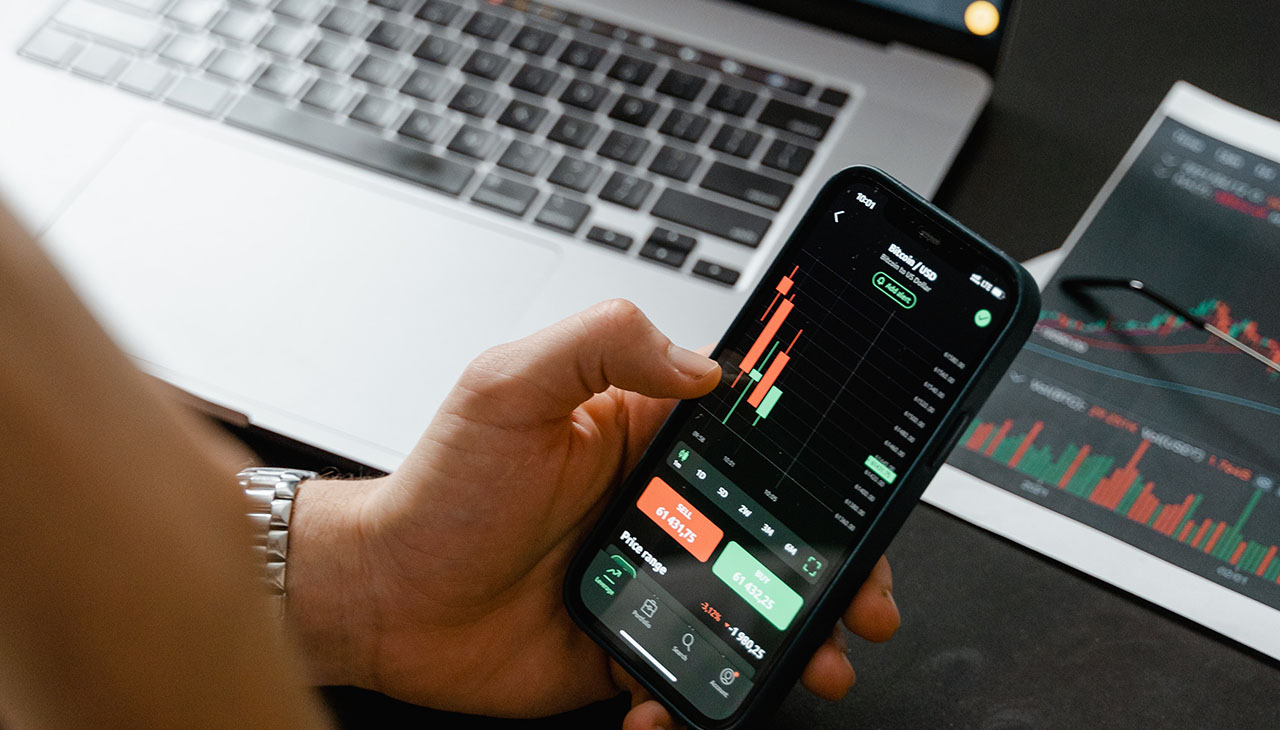A Brief Overview of Forex Trading and the Key Players in the Market
Forex trading, which stands for foreign exchange trading, is the simultaneous buying of one currency and selling of another. It is one of the largest financial markets in the world, with an estimated daily turnover of around $5 trillion. Forex traders buy and sell currencies to make a profit from their price movements. The forex market consists of four major players: central banks, commercial banks, investment firms (hedge funds and money managers), and retail investors. Central banks control the global money supply by setting interest rates that affect currency values. Commercial banks are responsible for executing orders on behalf of their clients while investment firms manage large portfolios of currencies. Finally, retail investors trade directly in the market through brokers or online platforms such as MetaTrader.
The Impact of Blockchain and Cryptocurrency on Forex Trading
In recent years, blockchain and cryptocurrency have revolutionized the way forex trading is conducted. Blockchain technology has enabled faster transactions with lower fees than traditional methods, making it easier for traders to enter the forex market. The use of cryptocurrencies has also made it possible to trade in multiple currencies without relying on a centralized exchange or third-party counterparties. Cryptocurrencies are not only used as a medium of exchange but also as an asset class in their own right. This means that they can be traded like any other currency pair, allowing traders to speculate on price movements to make a profit. In addition, many cryptocurrency exchanges offer margin trading, allowing traders to leverage their positions and magnify their profits.
Exploring the Benefits of Blockchain and Cryptocurrencies for Forex Trading
The introduction of blockchain and cryptocurrencies has opened up new opportunities for forex traders. By eliminating the need for a centralized intermediary, blockchain technology reduces transaction costs and speeds up processing times. This makes it easier for smaller investors to enter the market and compete with larger players. Cryptocurrencies also offer greater security than traditional currencies as they are stored in distributed ledgers which are protected by cryptographic algorithms. Additionally, their decentralized nature means that transactions can be completed without relying on third-party intermediaries or government regulations.
An Analysis of How Blockchain is Transforming Financial Markets
The use of blockchain and cryptocurrencies in the forex market is just one example of how these technologies are transforming financial markets. By providing a transparent, secure, and efficient platform for transactions, blockchain technology has opened up new possibilities in areas such as payments, crowdfunding, and derivatives trading. In addition to making transactions faster and more secure, blockchain technology can also be used to create innovative products that offer an alternative to traditional investment vehicles. For example, Initial Coin Offerings (ICOs) allow startups to raise money from investors without relying on venture capital or bank loans. Similarly, smart contracts enable two parties to enter into agreements with pre-programmed conditions which are automatically executed when certain criteria are met.
Challenges and Opportunities with Adopting Blockchain Technology for Forex Trading
Despite the many benefits that blockchain technology can offer, there are still several challenges and risks associated with its use. For example, security is a major concern as cryptocurrencies are highly vulnerable to hacking and other malicious activities. In addition, regulators have yet to develop an effective framework for monitoring the use of digital currencies in financial markets.
On the other hand, technological advancements such as distributed ledger technology could provide a solution to some of these issues. Additionally, the development of secure storage solutions for storing private keys and tokens could make it easier for traders to safely access their accounts. Ultimately, there are both challenges and opportunities when it comes to embracing blockchain technology in forex trading and investors should do their research before making any decisions.
The Impact of Smart Contracts on Forex Trading
Smart contracts are agreements written in code that is stored on the blockchain. This allows two parties to enter into a legally binding agreement that will be executed when certain conditions are met. Smart contracts can bring greater efficiency and transparency to forex trading, eliminating the need for third-party intermediaries and manual paperwork. Additionally, smart contracts can provide traders with greater control over their funds by allowing them to set up automatic payments or stop orders based on predefined criteria. This could potentially reduce transaction costs and enable faster execution times in the market.
What Can We Expect from the Future of Forex Trading with Blockchain and Cryptocurrencies?
The use of blockchain and cryptocurrencies in the forex market is still in its infancy, but it has already begun to reshape the way trading is conducted. In the future, we can expect to see more products that leverage these technologies to provide traders with greater control and access to global markets. Additionally, further regulation by governments could pave the way for a more efficient and secure trading environment. Ultimately, blockchain technology could have a significant impact on forex trading in years to come.
Conclusion
The introduction of blockchain and cryptocurrencies has opened up a new world of possibilities in the forex market. By providing faster transactions with lower fees, greater security, and increased transparency, these technologies could revolutionize the way we trade currencies. Furthermore, smart contracts could provide traders with more control over their funds and enable them to take advantage of opportunities in global markets. Although there are still several challenges associated with using blockchain technology for trading, its potential is undeniable and it will continue to shape the future of forex trading.

